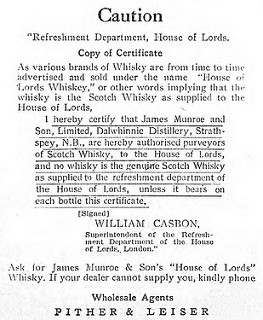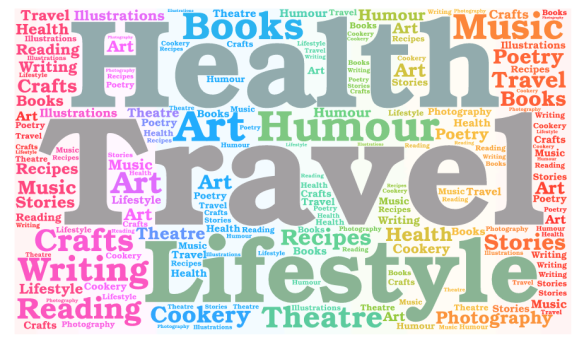
Today begins a series of posts from the archives of author Christoph Fischer who in his research for books has found it difficult at times to discover the truth of events. History is usually written by the victors…. in the days before World War I and II the only source of information was state owned media in print and then in radio. If that is the only truth you are fed then it will colour your observations and also recollections of events.
Is history the agreed upon lie? by Christoph Fischer
I must say that this is an excellent question and one that I have often thought about before writing historical novels.
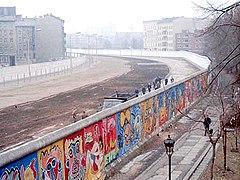
Image: https://en.wikipedia.org/wiki/Berlin_Wall
When the Berlin Wall came down, the German press was full of Chancellor Kohl walking along a river with President Gorbachev and the myth was created that on this “walk-and-talk” only Kohl’s diplomatic skills led to the German reunification. Praise the hero and superman Kohl. But was it really likely that anyone wanted two separate German states or cared in the period that was Glasnost? At the times many bought into the story, after all, didn’t it sound nicer than the idea that Russia had no longer an interest in the broken satellite state? Still, the myth made its way to history books and has always slightly bothered me because in my view it was created for all the wrong reasons.
In my research for “The Luck of the Weissensteiners”, I came across quite a few sources that seemed politically coloured. One history book about Slovakia as a state from the middle ages to the present only had a short chapter about the entire WWII era and it pretty much painted a whiter than white picture of Slovakia, an axis power at the time. Although it appears that the author didn’t even speak the language and had not researched within the country archives, there was no dispute about the book since it agreed with the polished version of events that many people in present day Slovakia would prefer to agree upon.
Archives have been destroyed by the axis powers, collaborators of Hitler managed to find their way back into the important positions, Communist regimes tried to white wash the former fascist past to bring the nation in line with its policy and many other factors might have come into play and make efficient research admittedly difficult. Let alone human sentiment and forgetfulness.
Mary Heimann learned Czech and did enormous research of her own for a book on Czechoslovakia as a state, but her findings are highly disputed, partially because they may not be totally waterproof and partially probably because they are painting a much less favourable picture of both Slovakia and the Czech Republic.
One example: Jews in Slovakia were safe for an extremely long time compared to other axis power states. The religious wing of the Fascist party claims credit for it. Others claim that the high price per head for each Jew that had to be paid to the German Reich had something to do with the reluctance of the then government to comply with Hitler’s demands.
Personal presidential exemption papers to save individual Jews from transportation allegedly were used in multiple thousands according to some sources but in much smaller numbers in others.
Admittedly, with so much original data destroyed and with such strong political and personal agendas to portray one’s country retrospectively, with eye witnesses dying away, who is to say which version is indeed true?
During my research for “The Luck of the Weissensteiners” I saw so many references made to the golden days of Vienna before WWI, the tolerant multi-cultural city and the Jew-friendly times. It was why I decided to set “Sebastian” in that period. My research for the new book however showed a much more complex and less favourable picture than I had anticipated. Particularly the work of Stefan Zweig, a Jew living in those times, challenges those assumptions strongly. Of course his work is mainly fiction and the history books can dismiss him easily as non-academic. So who do we believe?
Somewhere in my research a source wisely suggested that because of the horror that came twenty years later people’s memory changed their perception of the times and idealised the times in comparison, which makes a lot of sense.
The consequence for me as a writer is to keep checking data, to read all sides to a story and remember that history books are all relative when it comes to unquantifiable data. It is a continuous dispute and in most cases a wonderful challenge to think for yourself and maybe to find the occasional source material that brings in new light and aspects to what you think you knew.
I tried in my books to use the controversy in my favour, to let different characters make opposing statements, assumptions and predictions. Many of those characters didn’t have a television, radio or any type of reliable data to find out about what goes on beyond their own little corner of the world. And who can claim to have the comprehensive view, the complete information and can be sure to draw the right conclusions. All of this makes history exciting and a living process as long as it is not deliberately falsified. The line between misinterpretation and lie however are often more than blurred.
©Christoph Fischer 2013
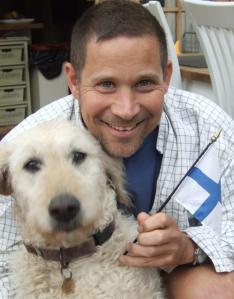
About Christoph Fischer
Christoph Fischer was born in Germany, near the Austrian border, as the son of a Sudeten-German father and a Bavarian mother. Not a full local in the eyes and ears of his peers he developed an ambiguous sense of belonging and home in Bavaria. He moved to Hamburg in pursuit of his studies and to lead a life of literary indulgence. After a few years he moved on to the UK where he now lives in a small town in West Wales. He and his partner have three Labradoodles to complete their family.
Christoph worked for the British Film Institute, in Libraries, Museums and for an airline. ‘
The Luck of The Weissensteiners’ was published in November 2012; ‘Sebastian’ in May 2013 and ‘The Black Eagle Inn’ in October 2013 – which completes his ‘Three Nations Trilogy’. “Time to Let Go”, his first contemporary work was published in May 2014, and “Conditions”, another contemporary novel, in October 2014. The sequel “Conditioned” was published in October 2015. His medical thriller “The Healer” was released in January 2015 and his second thriller “The Gamblers” in June 2015. He published two more historical novels “In Search of a Revolution” in March 2015 and “Ludwika” in December 2015.
He has written several other novels which are in the later stages of editing and finalisation.
The Luck of the Weissensteiners: Book 1 of The Three Nations Trilogy
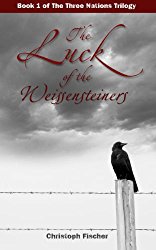 About the book
About the book
In the sleepy town of Bratislava in 1933 a romantic girl falls for a bookseller from Berlin. Greta Weissensteiner, daughter of a Jewish weaver, slowly settles into life with the Winkelmeier clan. The political climate and slow disintegration of the multi-cultural society in Czechoslovakia becomes more complex and affects relations between the couple and their families.
The story follows their lot through the war with its torment, destruction and its unpredictability – and the equally hard times after.
From the moment that Greta Weissensteiner enters the bookstore where Wilhelm Winkelmeier works, and entrances him with her good looks and serious ways, I was hooked. But this is no ordinary romance; in tact it is not a romance at all, but a powerful, often sad, Holocaust story.
What makes The Luck of the Weissensteiners so extraordinary is the chance Christoph Fischer gives his readers to consider the many different people who were never in concentration camps, never in the military, yet who nonetheless had their own indelible Holocaust experiences. Set in the fascinating area of Bratislava, this is a wide-ranging, historically accurate exploration of the connections between social location, personal integrity and, as the title says, luck. I cared about every one of this novel’s characters and continued to think about them long after I’d finished reading.
One of the many excellent reviews for the book
It’s THAT good By Scott Stevens on 9 September 2013Following Greta from pre-WWII Bratislava through Carlsbad through Aschaffenburg and ultimately to post-war Frankfurt is a well-written journey. Fischer’s The Luck of the Weissensteiners had me hooked into the journey, turning pages and asking the same question Greta stumbles upon frequently, “Where were friends or enemies?”
The novel is a historically sound piece dealing with loyalty, stigma, love, loneliness and oppression set against a backdrop of Eastern Europe’s turmoil. The characters’ lives were confounded at so many intersections by the results of a powerful anti-Semetic propaganda campaign. They don’t go to an Auschwitz or Buchenwald, but you quickly see that avoiding the camps was not freedom for the articulately drawn and likeable characters. You want to see what happens next to them and can feel the tension Fischer relays so well.
Chapters 3, 10 and 13 capture Greta’s emotion, tragedies and near-misses so intensely I bookmarked and went back for a welcome re-read. The book accomplishes a lot in covering more than a decade and a half without making a reader feeling rushed or missing something in the timeline. It’s paced that well … and the Epilogue cleanly tied together the themes and characters of the entire novel as a great exhibit of Fischer’s talent.
Read some of the reviews and buy the book: https://www.amazon.co.uk/Luck-Weissensteiners-Three-Nations-Trilogy-ebook/dp/B00AFQC4QC
And Amazon US: https://www.amazon.com/Luck-Weissensteiners-Three-Nations-Trilogy-ebook/dp/B00AFQC4QC
A selection of the books by Christoph Fischer.
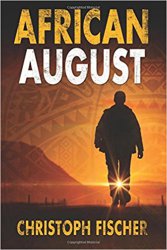
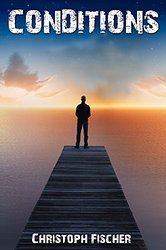

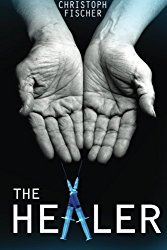


Read all the reviews and buy the books: http://www.amazon.com/Christoph-Fischer/e/B00CLO9VMQ
and on Amazon UK: https://www.amazon.co.uk/Christoph-Fischer/e/B00CLO9VMQ
Read more reviews and follow Christoph on Goodreads: http://www.goodreads.com/author/show/6590171.Christoph_Fischer
Connect to Christoph
Website: http://www.christophfischerbooks.com/
Blog: http://writerchristophfischer.wordpress.com/
Twitter: https://twitter.com/CFFBooks
Pinterest: http://www.pinterest.com/christophffisch/
LinkedIn: https://www.linkedin.com/profile/view?id=241333846
Facebook: http://www.facebook.com/WriterChristophFischer?ref=hl
My thanks to Christoph for sharing this post from his archives. Today with televised news on the spot in most countries it is more difficult to subvert the truth, despite some governments best efforts. It will be interesting to come back in a hundred years to see how present day events have been manipulated!
I am now looking for assorted Festive posts for December, recollections of Christmas past, family, humour, short stories, poems, recipes etc.. Have a delve through your previous December posts and if you are not planning on re-using.. pop them over to me at [email protected]
Advertisements Share this:



